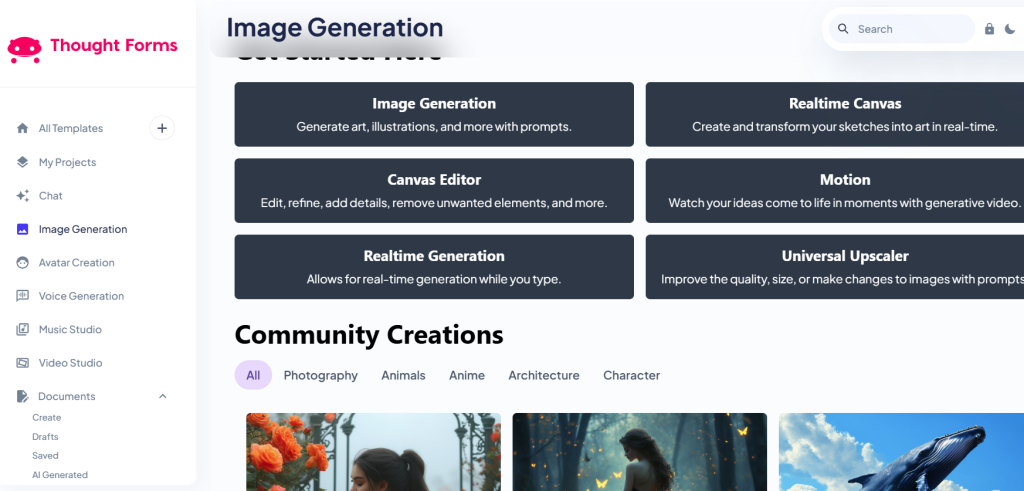- Home
- ai content generation
- 8 Industries Revolutionized by Artificial Intelligence

Unleashing AI’s Transformative Power
Artificial Intelligence (AI) is not just a tool of the future; it's a dynamic force reshaping industries today. From automating tasks to enhancing decision-making and creating new ways to interact with customers, AI's influence is widespread. Here's a look at ten industries where AI is making a significant impact and why it's happening.
Lets Take a Look...
Artificial Intelligence (AI) is reshaping the business landscape across the globe, redefining what is possible in industry after industry. From streamlining operations to personalizing customer experiences and pushing the boundaries of innovation, AI's impact is profound and pervasive. This transformative technology is not just improving existing processes but also creating new opportunities for growth and efficiency. In this overview, we will explore eight key industries that are undergoing significant change due to the advent of AI, illustrating how this technology is becoming an integral part of their evolution and success.
1. Healthcare
AI's ability to process vast amounts of medical data is revolutionizing diagnostics, treatment personalization, and patient care.
- Predictive Analytics: AI predicts diseases and medical events, facilitating early intervention.
- Robotics: Surgical robots, guided by AI, perform precise operations reducing recovery times.
- Drug Development: AI accelerates the discovery of new pharmaceuticals by predicting molecule behaviors.
2. Financial Services
AI is transforming financial ecosystems through automation and enhanced security.
- Algorithmic Trading: AI algorithms execute trades at superhuman speeds, maximizing profits.
- Fraud Detection: Machine learning models detect patterns and prevent fraud more efficiently than traditional methods.
- Personalized Banking: AI provides customized financial advice and automates routine customer service tasks.
3. Retail
The retail sector utilizes AI to optimize everything from inventory management to customer experience.
- Personalization: AI tailors shopping experiences to individual preferences, boosting satisfaction and loyalty.
- Supply Chain Optimization: AI predicts trends and manages stock levels, reducing waste and shortages.
- Customer Service: Chatbots and virtual assistants handle inquiries and complaints, providing round-the-clock service.
4. Manufacturing
AI in manufacturing enhances operational efficiency and product quality.
- Predictive Maintenance: AI predicts machine failures, reducing downtime and maintenance costs.
- Quality Control: AI systems detect defects and inconsistencies faster and more reliably than humans.
- Production Optimization: AI optimizes production plans based on market demand and resource availability.
5. Transportation and Logistics
AI is crucial in optimizing routes, managing global supply chains, and improving safety.
- Autonomous Vehicles: Self-driving cars and trucks increase safety and efficiency.
- Route Optimization: AI analyzes traffic data to recommend the fastest routes, saving time and fuel.
- Warehouse Automation: Robots, guided by AI, streamline picking and packing processes.
6. Education
AI personalizes learning experiences and improves educational outcomes.
- Adaptive Learning Platforms: AI tailors educational content to match the learning pace and style of each student.
- Automated Administration: AI automates scheduling, grading, and feedback, allowing educators to focus on teaching.
- Virtual Tutors: AI-powered tutors provide additional support to students, accessible anytime.
7. Agriculture
AI is helping the agricultural sector meet the growing global food demand more sustainably.
- Precision Farming: AI optimizes the application of water, fertilizers, and pesticides, enhancing yield and reducing waste.
- Crop Monitoring: AI-powered drones monitor crop health across vast areas, detecting pests and diseases early.
- Livestock Management: AI tracks health and productivity indicators in livestock, improving herd management.
8. Energy
AI optimizes energy production and distribution, contributing to more sustainable consumption.
- Grid Management: AI manages the flow of electricity through grids, balancing supply and demand efficiently.
- Renewable Energy Optimization: AI predicts weather patterns and adjusts renewable energy output accordingly.
- Energy Conservation: AI systems identify patterns in energy use and suggest ways to reduce consumption.
AI as a Catalyst for Change
As AI continues to evolve, its potential to transform industries grows exponentially. By embracing AI, sectors across the board can not only enhance efficiency and effectiveness but also create more innovative, responsive, and personalized services. The integration of AI is not merely an upgrade—it's a revolution in how industries operate and thrive.





